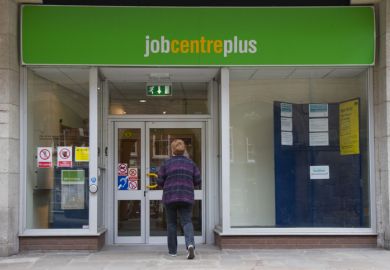Graduates’ wages increase more quickly if they went to a private school, compounding the fact that privileged university leavers attract higher starting salaries too.
That is according to a study published today by two social mobility charities, the Sutton Trust and upReach. It says that UK graduates who had an independent school background and entered a professional career were earning an average of £24,066 six months after graduation, and £36,036 three years after that – a 49.8 per cent increase.
In contrast, graduates who went to state schools and entered a high-status job started work on an average salary of £22,735 and were on £31,586 three years later – up 38.9 per cent.
This means that the pay gap between state and private school pupils widens from £1,331 (5.86 per cent) to £4,450 (14.1 per cent) over the course of three years.
The study, conducted by Jake Anders from the National Institute of Economic and Social Research, was based on data from the Destinations of Leavers from Higher Education survey, and the longitudinal version of the same exercise, which is conducted three years later.
The study says that about half of the difference can be explained by factors such as academic attainment prior to university, the type of university attended and the degree that the student achieved.
However, about half cannot be explained by any of these factors, and the research suggests that non-academic skills such as articulacy or assertiveness may play an important role in career progression.
Previous studies have found that graduates from less privileged backgrounds do not perform as highly as their privately educated peers on some non-academic attributes such as self-confidence and awareness.
The study’s findings align with the conclusions of research conducted by the Social Market Foundation for the Sutton Trust, which found that a privately educated person will have earned a cumulative total of £193,700 more than a state-educated worker by the time they are 42, on average. Even allowing for family background and prior educational attainment, the total premium is still nearly £58,000.
Henry Morris, the founder of upReach, said that the findings were concerning.
“Today’s research tells us that Britain’s social mobility challenge does not end on a graduate’s first day of work,” he said. “Despite doing as well academically, the pay of graduates from more privileged backgrounds rises more quickly than their peers.”
The two charities recommend that employers should support applicants from less privileged background, potentially with mentoring and guidance, to allow them to access opportunities more fairly. Such support should continue in the workplace, the study adds.
Sir Peter Lampl, the chairman of the Sutton Trust, said: “This new research shows us how vital is it that firms do more to improve social mobility through their recruitment practices. Enabling greater access to a wider pool of diverse talent will deliver real benefits for employers and employees alike.”
Register to continue
Why register?
- Registration is free and only takes a moment
- Once registered, you can read 3 articles a month
- Sign up for our newsletter
Subscribe
Or subscribe for unlimited access to:
- Unlimited access to news, views, insights & reviews
- Digital editions
- Digital access to THE’s university and college rankings analysis
Already registered or a current subscriber? Login





